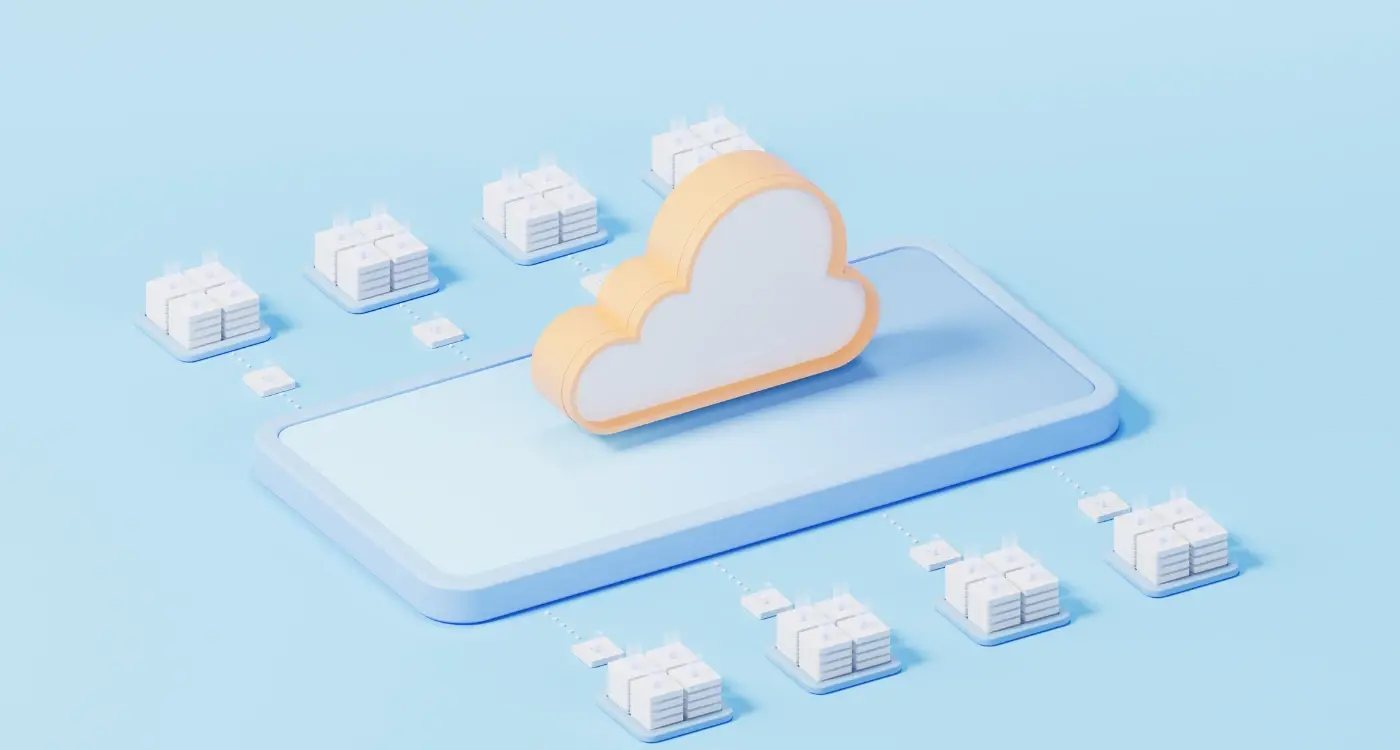How Much Does Database Hosting Cost For A New Mobile App?
Starting a mobile app business means facing some uncomfortable truths about costs—and database hosting is one of the biggest financial surprises waiting for new developers. Most founders budget for design and development but completely overlook the ongoing expense of storing and managing their app's data. This oversight can be expensive; database hosting costs can range from a few pounds per month for simple apps to thousands for complex applications with millions of users.
The mobile app market is ruthless when it comes to performance expectations. Users will abandon an app that takes more than three seconds to load, which means your database needs to be fast, reliable, and scalable. But here's the catch—better performance usually means higher costs. Cloud hosting providers like AWS, Google Cloud, and Microsoft Azure offer powerful database solutions, but their pricing structures can be confusing and unpredictable.
The biggest mistake I see new app developers make is choosing the cheapest hosting option without understanding how it will scale with their success
Understanding database hosting costs before you launch isn't just about budgeting—it's about making smart decisions that will support your app's growth. Whether you're building a simple productivity app or a complex social platform, knowing what you'll pay for data storage, processing power, and bandwidth will help you avoid nasty surprises down the road.
Understanding Database Hosting Basics
When I first started building mobile apps, I'll be honest—database hosting seemed like this mysterious technical thing that only server wizards understood. But after years of working with clients who've asked me "what's all this database stuff about anyway?", I've learned to explain it in simple terms that anyone can grasp.
Think of your mobile app's database like a filing cabinet that lives on the internet. Every time someone creates an account, saves a photo, or updates their profile in your app, that information needs to be stored somewhere safe and accessible. That's where database hosting comes in—it's basically renting space on powerful computers (called servers) that keep your app's data organised and ready to use 24/7.
What Makes Database Hosting Different
Database hosting isn't just about storage space like keeping files in a folder. These systems need to handle thousands of people accessing information at the same time, searching through data quickly, and making sure nothing gets lost or corrupted. The hosting service manages all the technical bits—keeping the servers running, backing up your data, and making sure everything stays secure whilst you focus on building your app.
Types of Database Hosting Solutions
When I'm working with clients on their mobile app projects, one of the biggest decisions we face is choosing the right database hosting solution. There are three main types to consider, and each comes with its own cost implications that can seriously impact your budget.
Cloud Hosting Solutions
Cloud hosting has become the go-to choice for most mobile apps I work on these days. Services like Amazon RDS, Google Cloud SQL, and Microsoft Azure offer scalable database solutions that grow with your app. The beauty of cloud hosting is that you only pay for what you use—brilliant for startups who aren't sure how big their user base will become.
Traditional Hosting Options
You've also got shared hosting, dedicated servers, and virtual private servers (VPS). Shared hosting is the cheapest option but comes with limitations that can hurt your mobile app's performance. Dedicated servers give you complete control but require more technical expertise and higher upfront costs.
- Shared hosting: Lowest cost but limited resources
- VPS hosting: Balanced cost and performance
- Dedicated servers: Highest performance but most expensive
- Cloud databases: Scalable and flexible pricing
- Managed database services: Higher cost but less maintenance
Start with cloud hosting for your mobile app—it's cost-effective and scales automatically as your user base grows, saving you from expensive migrations later.
The choice you make here will shape your ongoing costs, so it's worth getting right from the start.
Cost Factors That Affect Your Budget
When you're planning your mobile app's database hosting budget, several key factors will influence how much you'll spend. I've worked with clients who've been shocked by their hosting bills—and others who've been pleasantly surprised. The difference usually comes down to understanding what drives those costs.
Storage and Performance Requirements
Your app's data storage needs directly impact your hosting costs. A simple to-do app might need just a few gigabytes, whilst a photo-sharing platform could require terabytes. The type of storage matters too—faster SSD storage costs more than traditional hard drives, but your users will notice the difference in app performance.
Traffic volume is another major cost driver. During peak usage times, your database needs more computing power to handle all those simultaneous user requests. This is where many new app developers get caught out; they plan for average usage but forget about those busy periods when everyone's using their app at once.
Geographic Distribution and Backup Needs
The factors that'll impact your database hosting budget include:
- Amount of data you're storing
- Number of simultaneous users
- Geographic regions you're serving
- Backup and recovery requirements
- Security and compliance needs
- Integration complexity
Location matters more than you might think. Hosting your database closer to your users improves performance, but running multiple database instances across different regions increases costs. Security requirements can also bump up your budget—financial apps need more robust protection than a simple weather app.
Pricing Models for Mobile App Databases
After years of helping clients choose the right database hosting, I've seen every pricing model under the sun—and trust me, they can be confusing! Most cloud hosting providers offer three main approaches that you'll encounter when shopping around for your mobile app's database needs.
Pay-As-You-Go Models
This is probably the most straightforward option for new apps. You pay only for what you actually use; whether that's storage space, data transfer, or computing power. It's brilliant for startups because you're not committed to huge monthly bills when you might only have a handful of users. Amazon RDS, Google Cloud SQL, and Microsoft Azure all offer this type of pricing.
Fixed Monthly Plans
These work like a mobile phone contract—you pay a set amount each month regardless of usage. The benefit is predictable costs, which makes budgeting much easier. Most providers offer different tiers based on storage limits and performance levels, similar to how premium mobile app pricing models work.
The biggest mistake I see is choosing a pricing model based on cost alone rather than considering how it matches your app's usage patterns
Some providers also offer hybrid models that combine both approaches. You might pay a base monthly fee with additional charges if you exceed certain thresholds. The key is matching the pricing structure to your app's expected growth pattern—something we'll explore more in the next chapter.
Budget Planning for Different App Sizes
Planning your database hosting budget isn't a one-size-fits-all situation—what works for a small startup won't necessarily work for a large enterprise application. I've worked with clients across the spectrum, from single-person passion projects to massive corporations, and the difference in their database needs is staggering.
Small apps with fewer than 10,000 users typically need basic shared hosting or entry-level cloud solutions. You're looking at £20-80 per month for something like a simple MySQL database on shared hosting or a basic cloud instance. Medium-sized apps serving 10,000-100,000 users require dedicated resources and better performance; expect costs between £100-500 monthly for managed database services with proper scaling capabilities.
Enterprise-Level Considerations
Large applications supporting over 100,000 users need robust infrastructure with high availability, backup systems, and enterprise support. These setups start around £500 monthly but can easily reach thousands depending on your requirements.
Budget Allocation Guidelines
- Small apps: allocate 5-10% of total development budget to database hosting
- Medium apps: plan for 10-15% of your budget
- Large apps: expect 15-25% or more for comprehensive database solutions
- Always include a 20% buffer for unexpected scaling needs
The key is starting small and scaling up as your user base grows—you can always upgrade your hosting plan as your app becomes more successful.
Hidden Costs You Need to Know About
I've watched countless clients get shocked by their first mobile app hosting bill—and it's never pretty. The thing is, most people focus on the obvious costs like server space and bandwidth, but there's a whole bunch of sneaky expenses that pop up later.
Data transfer charges are probably the biggest surprise. Your cloud hosting provider might give you generous storage limits, but moving data in and out of your database? That's where they make their money. If your mobile app becomes popular and users start uploading photos or syncing lots of data, these transfer fees can quickly spiral out of control.
The Sneaky Extras That Add Up
- Backup and disaster recovery services (often charged separately)
- Security monitoring and threat detection tools
- Database performance monitoring dashboards
- API request fees beyond your monthly allowance
- Premium support packages for faster response times
- Compliance certifications (GDPR, HIPAA) that cost extra
Don't forget about scaling costs either. When your app suddenly gets busy, auto-scaling kicks in—but you'll pay premium rates for that extra capacity. It's like surge pricing for your database.
Always ask for a detailed breakdown of all potential charges before signing up, including overage fees and optional services that might become necessary later.
The smart move? Budget an extra 30-40% on top of your estimated monthly costs for these hidden expenses. Trust me, your future self will thank you. Just like with other hidden expenses in mobile app development, planning ahead prevents nasty surprises.
Conclusion
After working with hundreds of mobile app clients over the years, I can tell you that database hosting costs don't have to be a mystery—or a budget killer. The key is understanding what you're actually paying for and planning ahead rather than scrambling when your app suddenly needs more resources.
Most new apps can start comfortably with managed services like Firebase or AWS RDS for under £50 per month, sometimes even less. But here's what I've learned: the apps that succeed are the ones where founders think beyond launch day. They consider scaling costs, they budget for backups, and they don't ignore those sneaky data transfer fees that can add up quickly.
The biggest mistake I see? Choosing the cheapest option without considering growth. Your database needs will change—hopefully because your app is doing well! Whether you're building a simple productivity app or the next big social platform, start with a solution that can grow with you. Cloud providers make this easier than ever, but you need to understand their pricing models before you commit.
Remember, database hosting isn't just about storage—it's about keeping your users' data safe, accessible, and fast. That's worth investing in properly from day one.
Share this
Subscribe To Our Learning Centre
You May Also Like
These Related Guides

Should I Use Serverless Or Traditional Cloud Hosting For My App?

How Much Will Cloud Hosting Cost for My App With 1,000 Users?



